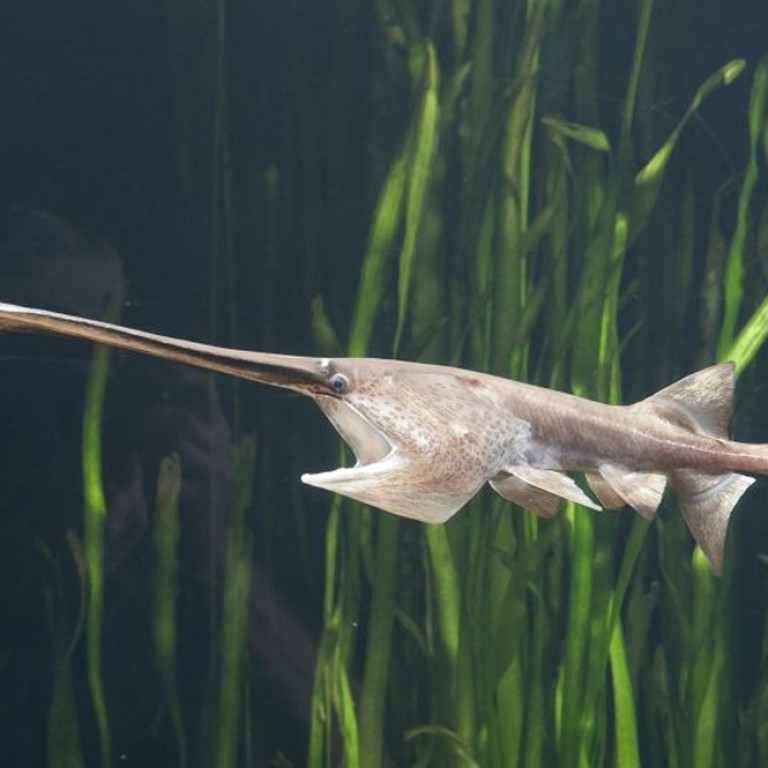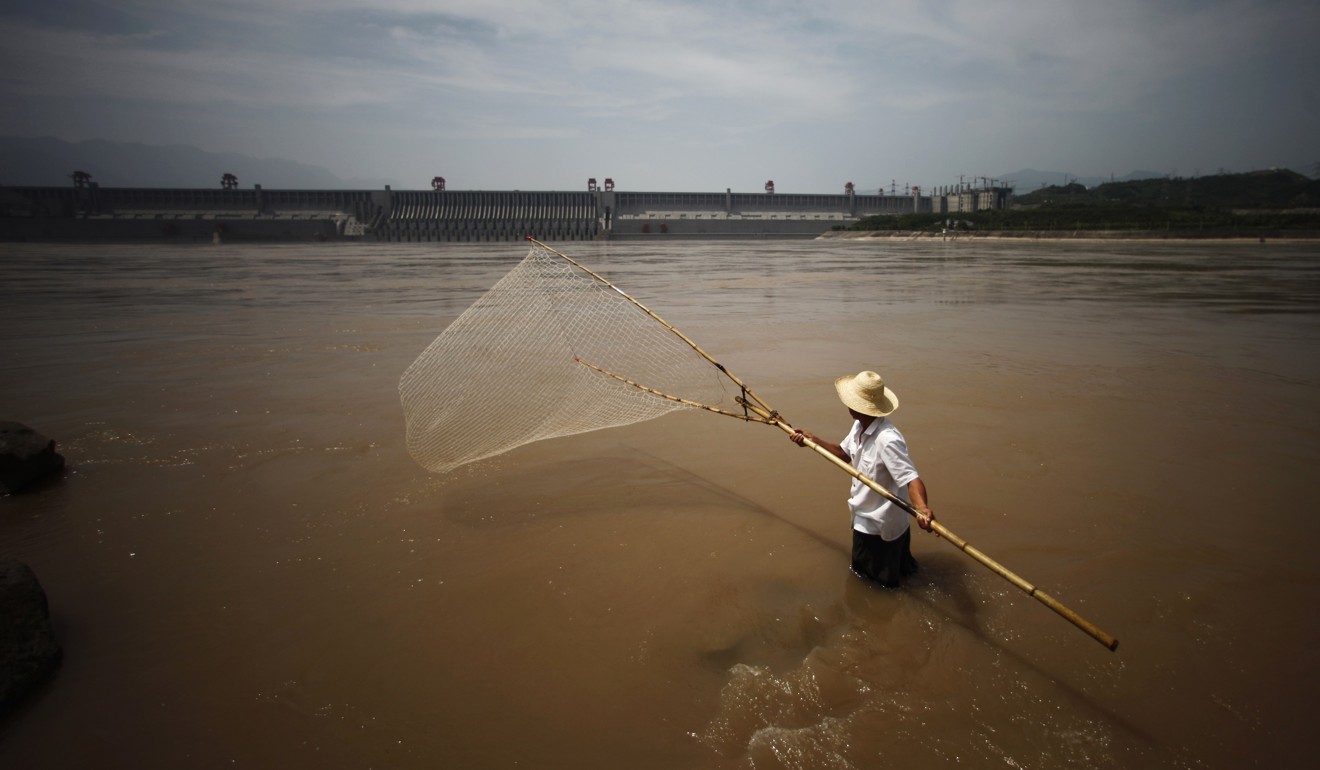
Chinese paddlefish, native to the Yangtze River, declared extinct by scientists
- One of the world’s biggest freshwater fish species, growing up to 7 metres long, is believed to have died out between 2005 and 2010
- Dam-building, overfishing, busy water traffic and pollution have taken a toll on the river, where a 10-year fishing ban took effect on Wednesday
The Chinese paddlefish, one of the world’s largest freshwater fish species and a native of the Yangtze River system, has been declared extinct.
Also known as the Chinese swordfish, the species grows up to 7 metres long and is believed to have vanished between 2005 and 2010. Chinese scientists made the announcement in a research paper published in Science of the Total Environment last week.
Wei Qiwei, one of the authors, said the conclusion was based on an evaluation by a panel of experts arranged by the International Union for Conservation of Nature in Shanghai in September.
“We respect the evaluation model and experts from the IUCN, although we accept this result with a heavy heart,” Wei, from the Chinese Academy of Fishery Sciences in Wuhan, told Chutian Metropolis Daily on Friday.
The last confirmed sighting of the giant fish – known in China as the “king of freshwater fish” – was in 2003. It had been on the IUCN’s critically endangered list since 1996 as its population declined due to overfishing and environmental degradation in its Yangtze habitat. The IUCN experts said there had been no imaging evidence of the species since 2009.

“The Chinese paddlefish, Psephurus gladius, was one of only two extant members of a relict lineage that was most diverse and widespread 34-75 million years ago,” the research paper said.
According to the paper, the species had likely been “functionally extinct” – meaning it lacked sufficient breeding pairs to survive – since 1993.
The struggling river system has more than 4,000 aquatic species, but dam-building, overfishing, busy water traffic and pollution have taken a toll, with fish stocks dwindling and biodiversity in rapid decline.
Yu Zhenkang, vice-minister of agriculture and rural affairs, told Xinhua this week there had been an “across-the-board decline” in populations of rare species.
It covers 332 conservation sites along the Yangtze, and will be extended to include the main river course and key tributaries by January 1 next year.
Research paper author Wei said a team from the fishery sciences academy had made the last known sighting of a Chinese paddlefish in 2003.
After attaching an ultrasonic tracker to the fish, they released it back into the Nanxi River, a tributary of the Yangtze in Sichuan province. But they lost the signal after the tracking boat ran into rocks in the fast-flowing river, Wei told Chutian Metropolis Daily.
He said he saw a Chinese paddlefish for the first time, albeit a dead one, in 1984, near the huge Gezhouba dam project on the Yangtze in Hubei province. Over the next nine years, he managed to rescue four of the giant fish that had become trapped, but only one survived and was later released.
“Paddlefish are huge,” he said. “It’s very difficult to raise them [in captivity].”

